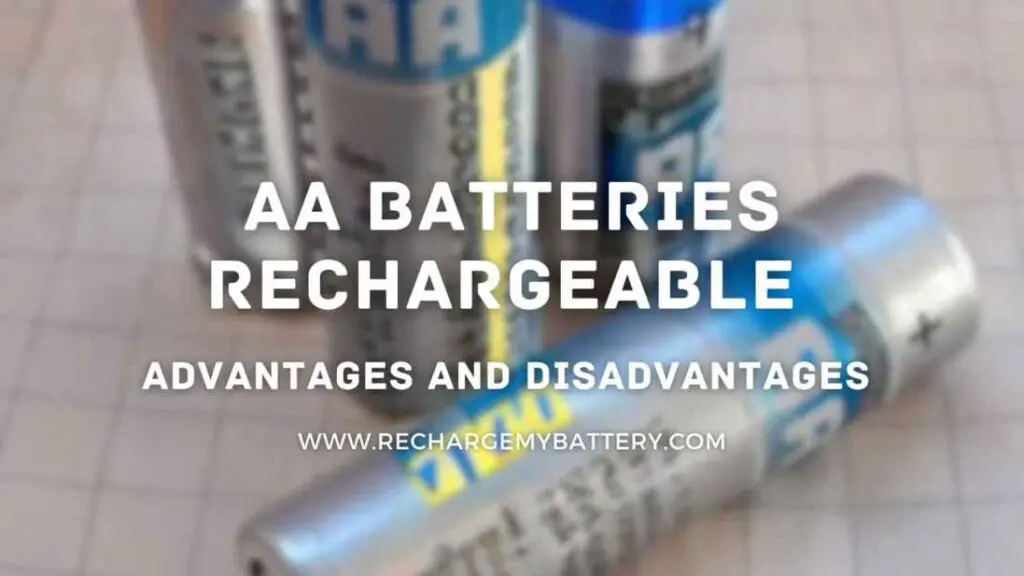In this article, we will explore the world of alkaline battery rechargeable, understand their benefits, and applications, and provide insights on choosing the right battery for your needs.
Understanding Alkaline Batteries
- Alkaline batteries are disposable batteries that convert chemical energy into electrical energy.
- They consist of a manganese dioxide cathode, a zinc anode, and an alkaline electrolyte solution.
- Alkaline batteries are renowned for their long shelf life, high energy density, and reliable performance in extreme temperatures.
- Unfortunately, once depleted, they are usually thrown away, which contributes to environmental concerns.
Introduction to Rechargeable Batteries
- Rechargeable batteries are designed for multiple uses and can be recharged by applying electrical energy.
- Types of rechargeable batteries include nickel-metal hydride (NiMH), lithium-ion (Li-ion), and lead-acid batteries.
- Rechargeable batteries offer the advantage of reducing waste and saving money by eliminating the need for frequent battery replacements.
Alkaline Battery Rechargeable: The Benefits
See the below points:
- Alkaline battery rechargeable combines the benefits of alkaline batteries and rechargeable batteries.
- They are designed to be recharged and reused, unlike regular alkaline batteries.
- This hybrid design offers the convenience of rechargeable batteries with the performance of alkaline batteries.
- Alkaline rechargeable batteries have a higher energy density, providing longer runtime for devices.
- They have a lower self-discharge rate, allowing them to hold their charge for longer periods.
- Alkaline rechargeable batteries are suitable for applications with occasional use or infrequent charging.
- Compared to other rechargeable battery types like NiMH or Li-ion, alkaline rechargeable batteries offer advantages.
- They have a longer shelf life and can be more cost-effective in the long run.
- Choosing the right alkaline rechargeable battery involves considering voltage, capacity, brand, and compatibility with devices.
- Proper care and usage can extend the lifespan of alkaline rechargeable batteries.
- Alkaline rechargeable batteries find applications in portable electronics, high-drain devices, and industrial settings.
- They are environmentally friendly and can be recycled.
- Alkaline rechargeable batteries do not have a memory effect and can be recharged at any time.
Choosing the Right Alkaline Rechargeable Battery
1. Determine the required voltage and capacity for your device
- Alkaline rechargeable batteries come in sizes such as AA, AAA, C, and D, each with different voltage and capacity ratings.
- Ensure compatibility with your device’s requirements.
2. Consider the brand and model
- Opt for reputable brands known for quality and reliability.
- Popular alkaline rechargeable battery brands include XXX and YYY.
- Check customer reviews and ratings to assess performance and durability.
Caring for Alkaline Rechargeable Batteries
Some caring tips include:
- Avoid exposing the batteries to extreme temperatures.
- Store alkaline rechargeable batteries in a cool, dry place when not in use.
- Follow the manufacturer’s guidelines for charging and discharging.
- Prevent overcharging or deep discharge, as it can damage the batteries.
Applications and Uses of Alkaline Rechargeable Batteries
1. Portable electronics
Alkaline rechargeable batteries are commonly used in devices such as digital cameras, portable music players, and remote controls.
2. High-drain devices
Their high energy density makes alkaline rechargeable batteries suitable for powering high-drain devices like electronic toys and gaming controllers.
3. Industrial applications
Alkaline rechargeable batteries find applications in industrial settings, where they power equipment and machinery.
Conclusion
Alkaline battery rechargeable offers a versatile and eco-friendly power solution for a wide range of devices. Their combination of rechargeability and alkaline performance makes them an attractive option for consumers and businesses alike.
By making the choice of the right alkaline rechargeable battery, caring for it properly, and leveraging its benefits, you can enjoy long-lasting power and reduce waste. Make the switch to alkaline rechargeable batteries and enjoy a good experience.
Thank you for reading this post.


